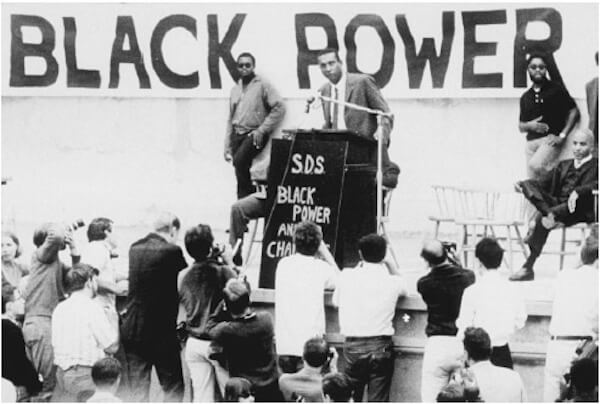


They understood that the fieldwork that grassroots activists had conducted in some of the most dangerous regions of the South had sparked their interest in the ideology. The sequence of events that prompted SNCC's call for Black Power was also no secret to the group's members. and social institutions in the Black community where we worked." (3) "Those new voters will only become frustrated and alienated." (2) Cleveland Sellers, SNCC's program secretary, pointed out that when SNCC members spoke of Black Power, "it was in a political context of building political. "It is not enough to add more and more people to the voter rolls and then send them into the old 'do-nothing,' compromise-oriented political parties," they wrote. They added that independent political mobilization was the first step toward organizing these power bases.

Hamilton, explained that above all else the slogan meant organizing independent, African American power bases, an approach to political change that SNCC activists deemed necessary because existing electoral forms and structures did not permit African Americans to participate in political decision-making. In Black Power: The Politics of Liberation, published the year after the Meredith March, Carmichael and his co-author, political scientist Charles V. The meaning of Black Power was never a mystery to Carmichael and his comrades. Unfortunately, the actual meaning that Carmichael and his fellow SNCC organizers attached to the phrase "Black Power," as well as the political process that led them to embrace the more militant ideology, has become somewhat muddled over time. It was the highpoint of the Meredith March and not only introduced a more radical slogan into the protest lexicon of African Americans, but also ushered in a new phase in the on-going black freedom struggle. He repeated the question a half dozen times to the crowd of 600 gathered on 16 June 1966 at the Leflore County, Mississippi, schoolyard for a rally in support of James Meredith's "March Against Fear." Each time the crowd roared back, "Black Power! We want Black Power!" (1) The importance of this moment in the summer of 1966 has been well established in the literature on the modern Civil Rights Movement. "What do we want?" shouted Stokely Carmichael, the 24-year-old chairman of the Student Nonviolent Coordinating Committee (SNCC).


 0 kommentar(er)
0 kommentar(er)
